- Home
- J. R. Ward
The Black Dagger Brotherhood_An Insider's Guide Page 26
The Black Dagger Brotherhood_An Insider's Guide Read online
Page 26
In. Front. Of. Suz. Brockmann.
And my mother.
On the third floor of the lobby of that hotel in Atlanta . . . so it was in public.
I still cringe.
Suz, of course, handled it graciously, and listened as I blubbed on about the fact that I was fricking losing it and I didn’t know if I could keep the quality of my writing up and I wasn’t sure whether I would be able to meet the deadlines and I was worried about not doing the very best job that any author now or in the past or in the future could do with the opportunities I’d been given.
Suz let me go on and on, and when I’d worn myself out like a hamster on a spinning wheel, she looked at me and said she knew exactly what all that was like. She knew precisely how it was to want to be perfect and do a perfect job and somehow earn the success you’d been gifted with. The thing was, she said, as time passed she learned that if you shoot for absolute perfection, you’re going to fail by definition—and that “perfect” simply cannot be the standard, because you will burn yourself out.
Doing the very best you can with where you’re at is what matters.
When I was younger, particularly when I was doing the lawyer/corporate America thing, I nearly killed myself trying to be perfect, and I was on the same path back then with the writing. But Suz opened my eyes—and I figured what worked for her was good enough for me.
(Note: I asked her to read this part before this book went to print to make sure she was comfortable with being mentioned—and she said that the advice she gave me was a “pay it forward kind of thing”—it was first given to her by a wonderful Harlequin writer, Pat White, who got it from a book called The Four Agreements by Don Miguel Ruiz. Now I’m passing it along. Kind of cool, huh.)
So, look, on the publishing journey . . . don’t beat yourself up. Do the best you can. Inevitably, real life is going to get in the way of the quality or the quantity of your writing . . . or your enthusiasm or your faith in your dream . . . or your success. Know this going in, and find yourself some good support, whether it’s friends or other writers or your family or your dog—and remember that there are only guidelines, no hard-and-fast rules for anything, whether it’s craft or business or success. I always temper whatever advice I give with the caveat that what’s worked for me may not be right for someone else, and that everything is just an educated guess. And that’s okay.
Because miracles happen.
Every day.
The thing is, if you don’t put yourself out there, it makes it a lot harder for them to find you. So, please, take a chance and see where it leads. And be kind to yourself along the way. At the end of the day, all we can do is believe in ourselves and work hard . . . the rest is left to fate.
Oh, and be grateful.
I know I am.
The Black Dagger Brotherhood Proposal
The Black Dagger Brotherhood Proposal
A lot of writers who are starting out on their journey to get published ask me questions about query letters (which are the correspondence you send out introducing you and your project to agents and/or editors) and proposals. Writer’s Market has some good examples of query letters. Bottom line is keep it on one page, detail your project succinctly, but with enthusiasm, and list your writing credentials (such as any publishing credits you have, contests you’ve won, and professional memberships [like RWA]). Include also any relevant personal information that pertains to the particular material (i.e., you’re a pediatric nurse who’s writing about a heroine who’s a pediatric nurse).
Proposals are generally the outline of your book, which is all about telling, not showing, and the first three chapters of the manuscript. What follows is the exact proposal I sent out for the Brotherhood through my agent (you can read the first three chapters in the book if you like). Right off the bat, I’m going to tell you it’s way too long—so if you follow this example, I encourage you to do one full version for yourself, then pare it down for agents/editors. I made up the format myself—I’d never seen anyone else’s proposals at that point and just focused on what I would want to know about the series if I were an editor. I will say that I think the layout works especially well with paranormals—you’ll note I include the rules of the world as well as an overview of every major character and their role not only in the book, but in vampire society.
For me, it’s cool to go back and read it through and see the changes in content. The vast, vast majority of the discrepancies that show up are because I misinterpreted what I saw, or because I saw more later which changed the implications of these original scenes. In a few cases, however, the differences came about because there were holes in what I was shown and I filled them in with stuff I made up. For example, when I first saw Phury and Z, I didn’t know they were twins, didn’t know much about them at all. Rather than leave the slate blank, I developed some background for them both that I thought was suitably dramatic. The truth came out though as I actually drafted the full manuscript.
And the same was true for the way Dark Lover ended. While I was outlining, the scenes stopped coming to me at the point that Wrath was in the clinic after he got shot. That just didn’t seem like the right way to end the book, however, although it was all I had. I tried to come up with more—and I put in some things—except I sensed that wasn’t what really happened. Fortunately the rest of the scenes downloaded during the writing, and the Brotherhood ended up together, still in Caldwell, at Darius’s compound.
You will see that I made no mention of the Omega—that was because he wasn’t clear to me. At least not until the drafting! Then I knew more than enough.
You’ll also note, particularly in the introductory section, that I talk about my having “given” Wrath a critical weakness or “constructed” a situation to bring a woman into his life. This was, of course, not how things went down at all—but I was understandably wary of telling editors that these vampires were in my head, telling me what to do! I figured it was a good idea to present the story as though I was at least nominally in control of the material. Even if the truth was anything but that.
And I never did use uta-shellan in the series. I just went with shellan.
Oh, and the anticipated word count? Waaaaaaaaaaaaay off on that one!
Last word: I’ve reproduced the file below right off my computer and it’s not going to be copyedited as part of the editorial process of this insider’s guide—what you see is exactly what went out to market, mistakes and all. The purpose is to show that I did my very best to make sure there were no errors, but there are and though that’s not desirable, it still sold. This is not to encourage laziness—but part and parcel of the whole no-one’s-perfect thing.
Dark Lover By J.R. Ward Single Title, approx. 100,000 words
OVERVIEW/THEMES
A well-constructed world of vampires can amplify the very best elements of romance: hot sex, high stakes, and soaring emotion can come together in a unique, contemporary setting. For this kind of book to work properly, the Rules of the World have to be firm and unyielding and these laws must be constructed to encourage acts of heroism and sacrifice for love. Contrasts are critical and have to play strongly through out the plot: strength vs. weakness; righteousness vs. evil; loyalty vs. betrayal; love vs. hatred; loss vs. communion; these essential forces must all be represented. The heroes need to be supermen facing foes of worthy stature. And the heroines need to have strong backbones and sharp intelligence.
And did I mention there has to be lots of fantastic sex over the course of steamy nights? Yeah, I guess that comes under the hot sex part.
In planning this book, I started with a warrior hero who needs to be healed by love. Wrath is a four hundred year old vampire, the last of his line, the only pure bred of his race left on earth. He has incredible physical strength, he’s menacing and sexy, and he’s blind. With respect to his disability, I thought it would be important to give him a critical weakness. His lack of sight forces him to rely on others and provides a good contrast to his otherwise
physical invincibility. His poor vision does not hinder his ability to fight, however.
Wrath has been at war with members of a dark arts society of vampire hunters since he went through his transition. Vampires in this series are born without their race’s characteristic features: fangs, super strength, longevity, photophobia, and the need for blood don’t come to them until some time around their twenty-fifth birthday when they undergo an agonizing physical transformation. To survive, they don’t drink from humans, they need a vampire of the opposite sex.
Prior to his transition, Wrath was scrawny, prone to sickness, weak. As a result of his poor health and eyesight, he was unable to save his parents when they were attacked by the vampire hunters. This contrast between Wrath’s earlier feebleness and his current status of super-strength is at the crux of his internal conflict. His inability to protect those he loved is a failure he has never forgiven himself for. His vengeance and self-hatred have consumed his soul and shut out all avenues of love and caring.
Wrath is a menace to be sure, but he’s worthy of being liberated from his emotionally barren world. The trouble is, in order for his salvation to occur, he’s got to learn that he can take care of someone and that he is worthy of love. Because he avoids personal relationships, I had to construct a situation whereby he was forced to have a woman come into his life.
Beth Randall, the heroine, is resilient, super-smart, physically beautiful and the half-human daughter of one of Wrath’s band of warrior brothers. When her father is killed by their enemies, Wrath is forced to accept Beth as a responsibility and help her through her transition. Through being with Beth, and supporting her, Wrath is compelled to relive his own transition and the deaths of his parents. Beth helps him process the events more accurately and he is able see how his perceived failure to protect those he loved from death was not in fact the result of a lack of honor or internal weakness of his. This helps to free him of his burden of self-hatred and heals his emotional scars, leaving him able to love her with passion and commitment.
As for Beth, when we meet her at the beginning of the book, her life is as lonely and emotionally barren as Wrath’s. Having grown up in the foster care system, she has no idea who her parents were and she has no familial support system whatsoever. She’s stuck in a nowhere job. She longs for a relationship but can’t seem to make the right connections with men. She also has no clue that she’s half-vampire. When Wrath enters her life, she’s swept up into a new world that gives her the opportunity to love and be loved as well as to find a family. And through Wrath, she finally gets that critical link to a parent she’s always wanted. She also gets a good dose of excitement and passion.
The secondary romance features Wrath’s shellan, or titular wife, Marissa and a hardened homicide detective. Marissa has loved Wrath for centuries but he’s always been out of her reach emotionally and physically. She’s a gentle soul who’s lonely and she longs for the day when Wrath finally sees all she has to offer. Marissa’s a tricky character to portray. She can’t come across as a doormat because that’s boring. But she needs to be a foil to Wrath’s dark menace and their incompatibility has to be believable.
In the course of the book, Marissa realizes Wrath will never love her and this frees her to find her heart’s other half in Detective Butch O’Neal. Butch is a good man who, not unlike Wrath, can tread the edge of madness when he lets his anger out. His daily life is a bleak stretch of death and red tape and he’s been slowly losing his soul, figuratively speaking, for years. He meets Marissa and her inner purity refreshes him and gives him an optimism about life and love that he’s lost. He also finds the vampire culture to be more compatible with his temperament. The complications inherent in him being a human and Marissa a vampire will only be partially solved by the end of the book. Their future will not be clear.
A note on Wrath’s foes. In large measure, the average vampire in this series (apart from the heroes) simply wants to live in peace and co-exist with humans without being discovered. Vampires have been hunted systematically since the Middle Ages out of intolerance and a lack of understanding over their race’s need to drink blood. Terrible acts of violence have been perpetrated by members of the so-called Lessening Society and vampires have been driven nearly to extinction. A select corps of vampire warriors are the defenders of the race and Wrath is the strongest arm among this band of brothers.
The band of brothers offers avenues for development of a series. Each one of the six of them have a crucial weakness. They have lost family, been betrayed by friends and lovers, suffered and endured great pain. They fight for their race, facing their enemies with courage and skill, but at the end of the night, all but one go home alone. The manner in which love tames a savage beast of man, revealing his caring, nurturing core, is a universal tenet of romance. Each of these men are in need of salvation and deserving of the love they require in order to be healed.
This story is set in a large town in upstate New York that is located on the Hudson River. It’s the beginning of July and the weather is hot with thunderstorms sweeping through the area regularly and marking the nights with lightening flashes and the deep rumbling of thunder. In the book, the interior settings are urban and in large measure gritty: dance clubs; apartments; the police station; a diner; a martial arts academy. The contrast is where Wrath stays. The chamber he uses is housed in a lavish mansion. The exteriors are likewise mostly stark: dark streets; back allies; parking lots; a stretch under a suspension bridge. I believe the sober tone of the book’s scenery sets off the contrast of love’s warmth, comfort and light to its best advantage.
Again, I’m convinced that vampire love stories have the perfect blend of fantasy and romance. The format is elastic enough so that magic and ritual can be present in contemporary settings but the themes are universal and enduring. I am thrilled to be working on this project and excited by the characters and their lives.
And did I mention that the vampires are just plain sexy hot?
Thank you for your consideration.
MAIN CHARACTERS
Beth Randall
Beth Randall is turning twenty-five and unhappy in her life. She was raised in the foster care system and she’s been unable to find any information on either of her parents. The only thing she knows is that her mother died in childbirth. This lack of knowledge has been difficult bear and she feels groundless, wondering if she’ll ever really know who she is. Or where she belongs.
Her job as a reporter is an outlet for her frustrated searching and she takes satisfaction in finding the answers to other people’s lives. She covers the police blotter for the Caldwell Courier Journal and she spends a lot of time down at the station with the cops. A couple of them have asked her out but she’s never been too interested. On the whole, men find her extraordinarily attractive but ultimately they leave her cold. She wonders sometimes if she isn’t a lesbian because she just doesn’t seem too interested in having sex with men. Then again, she isn’t attracted to women, either.
When she looks ahead ten years, she can’t picture anything changing. She sees herself going to work day after day, getting nowhere fast at the paper, and going home to her cat. She longs for family, for love, for connections to people, but she just can’t seem to relate to the men and women around her.
Lately, Beth hasn’t been sleeping well. She’s also been hungry all the time and eating constantly but at least she’s not putting on any weight. She can’t shake the feeling that something bad is about to happen to her and the fact that she has no one who she can really talk to makes her ever present feelings of loneliness all the more acute.
Wrath
Wrath was born in the 17th century to a pair of adoring parents. His father was the chief of their race and a respected leader. His mother was a kind, compassionate female. Wrath’s birth was celebrated throughout their world as vampires rarely conceive and many of their infants are still born. The race took relief in knowing that their traditions would survive after his father’s de
ath and they intertwined their hopes and dreams with Wrath’s future as chief.
But Wrath was sickly as a child, scrawny as a teenager, and there was concern he wouldn’t survive until his middle twenties when his transition would finally strengthen his body. His eyes were of particular concern as his sight was poor even before he matured. His parents and their servants watched over him constantly and he grew up believing that the world was a safe, orderly place in spite of his health problems.

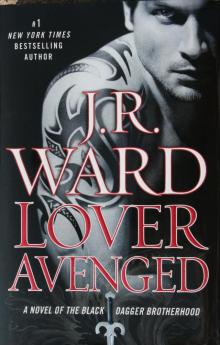 Lover Avenged
Lover Avenged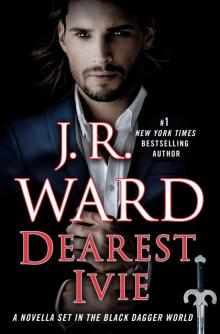 Dearest Ivie
Dearest Ivie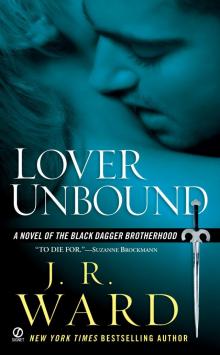 Lover Unbound
Lover Unbound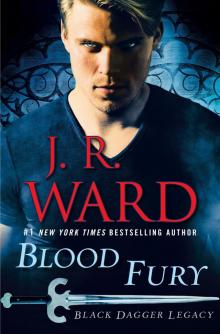 Blood Fury
Blood Fury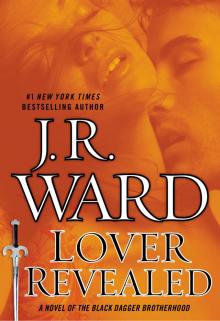 Lover Revealed
Lover Revealed The Thief
The Thief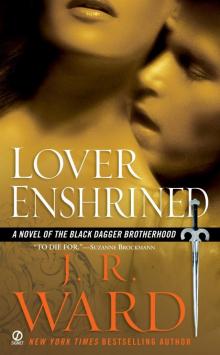 Lover Enshrined
Lover Enshrined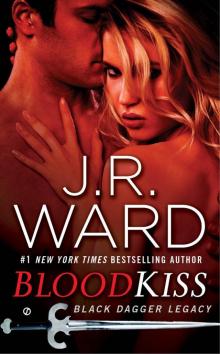 Blood Kiss
Blood Kiss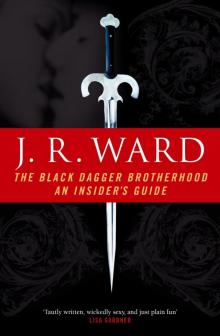 An Insiders Guide
An Insiders Guide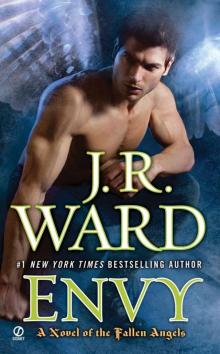 Envy
Envy Crave
Crave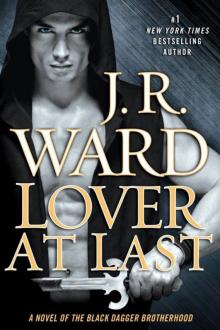 Lover At Last
Lover At Last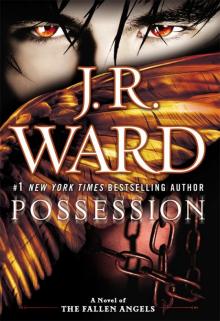 Possession
Possession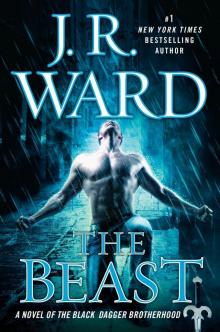 The Beast
The Beast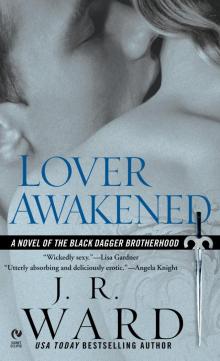 Lover Awakened
Lover Awakened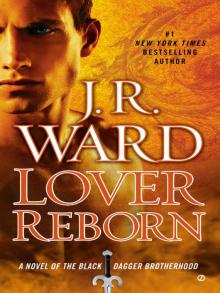 Lover Reborn
Lover Reborn The King
The King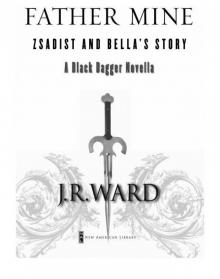 Father Mine
Father Mine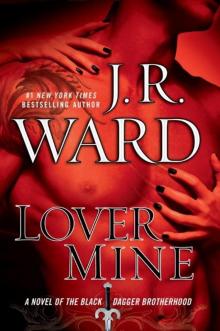 Lover Mine
Lover Mine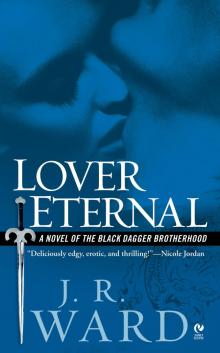 Lover Eternal
Lover Eternal The Chosen
The Chosen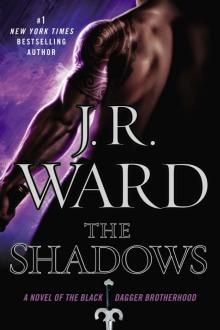 The Shadows
The Shadows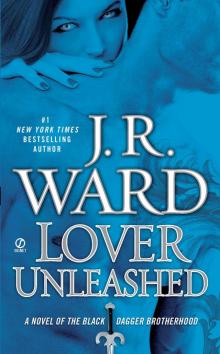 Lover Unleashed
Lover Unleashed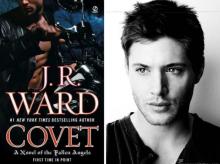 Covet
Covet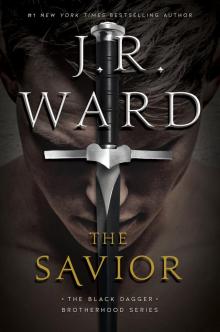 The Savior
The Savior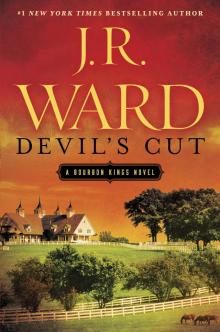 Devil's Cut
Devil's Cut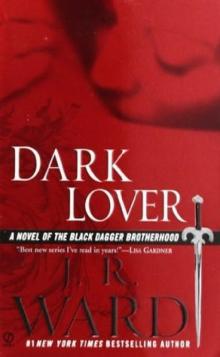 Dark Lover
Dark Lover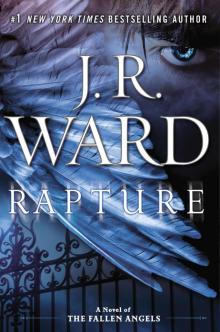 Rapture
Rapture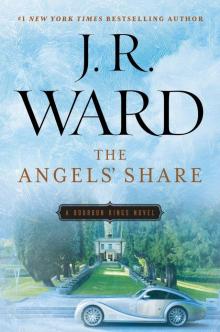 The Angels' Share
The Angels' Share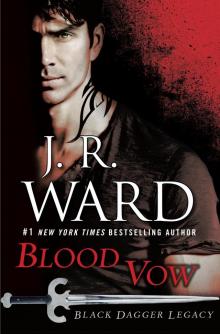 Blood Vow
Blood Vow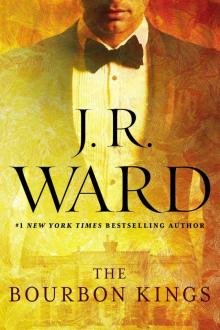 The Bourbon Kings
The Bourbon Kings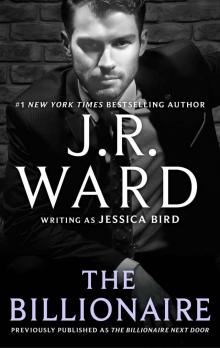 The Billionaire
The Billionaire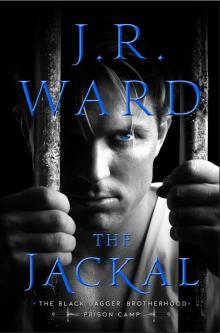 The Jackal
The Jackal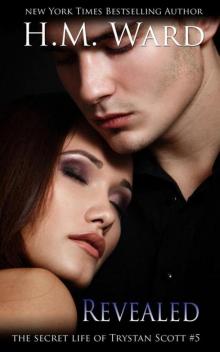 Revealed
Revealed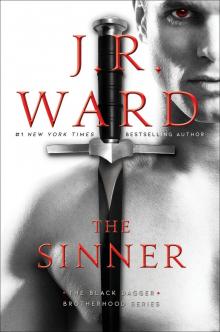 The Sinner
The Sinner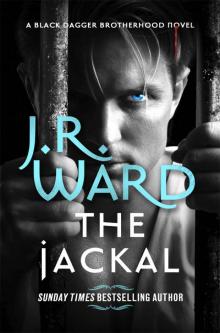 The Jackal (Black Dagger Brotherhood: Prison Camp)
The Jackal (Black Dagger Brotherhood: Prison Camp)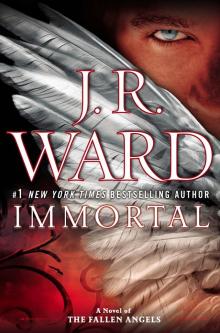 Immortal
Immortal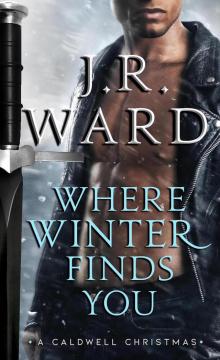 Where Winter Finds You
Where Winter Finds You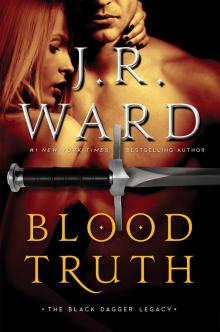 Blood Truth
Blood Truth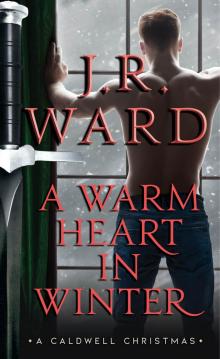 A Warm Heart in Winter
A Warm Heart in Winter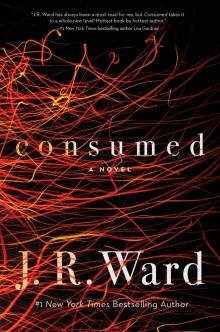 Consumed
Consumed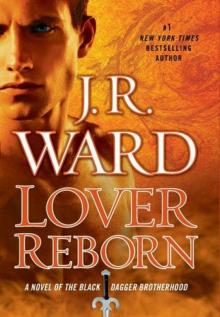 Lover Reborn tbdb-10
Lover Reborn tbdb-10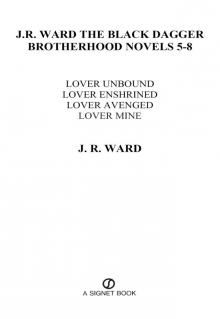 The Black Dagger Brotherhood Novels 5-8
The Black Dagger Brotherhood Novels 5-8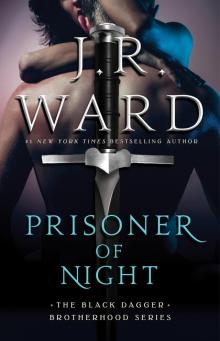 Prisoner of Night
Prisoner of Night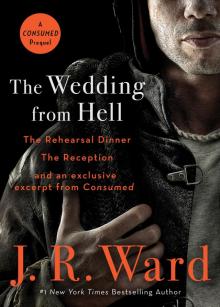 The Wedding from Hell Bind-Up
The Wedding from Hell Bind-Up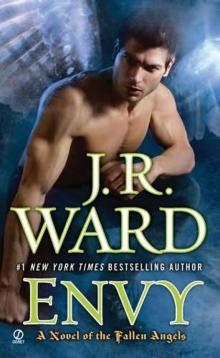 Envy fa-3
Envy fa-3![Covet - A Novel of Fallen Angels [01] Read online](http://i1.bookreadfree.com/i/03/24/covet_-_a_novel_of_fallen_angels_01_preview.jpg) Covet - A Novel of Fallen Angels [01]
Covet - A Novel of Fallen Angels [01]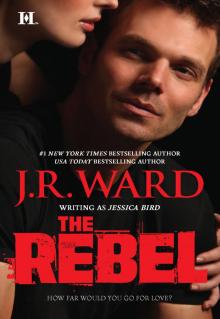 The Rebel
The Rebel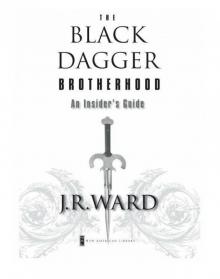 The Black Dagger Brotherhood
The Black Dagger Brotherhood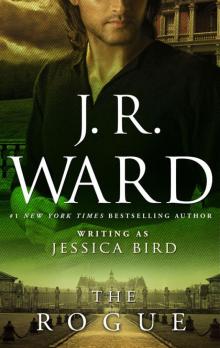 The Rogue
The Rogue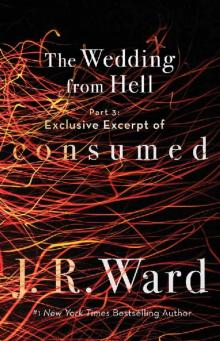 The Wedding from Hell, Part 3: Exclusive Excerpt of Consumed
The Wedding from Hell, Part 3: Exclusive Excerpt of Consumed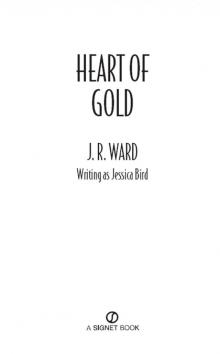 Heart of Gold
Heart of Gold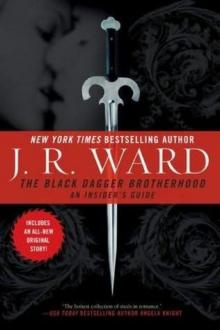 The Black Dagger Brotherhood_An Insider's Guide
The Black Dagger Brotherhood_An Insider's Guide![[Fallen Angels 01] - Covet Read online](http://i1.bookreadfree.com/i1/04/03/fallen_angels_01_-_covet_preview.jpg) [Fallen Angels 01] - Covet
[Fallen Angels 01] - Covet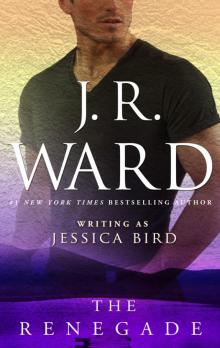 The Renegade
The Renegade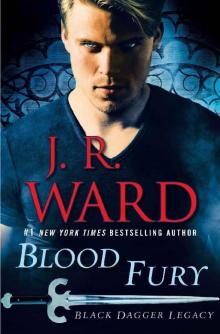 Blood Fury: Black Dagger Legacy
Blood Fury: Black Dagger Legacy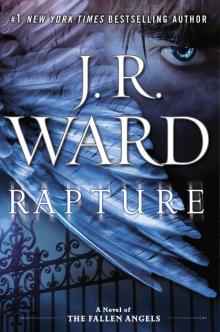 Rapture: A Novel of The Fallen Angels
Rapture: A Novel of The Fallen Angels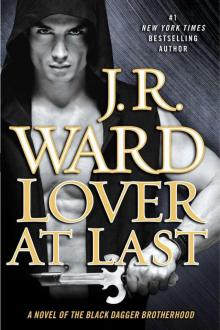 Lover At Last: A Novel of the Black Dagger Brotherhood
Lover At Last: A Novel of the Black Dagger Brotherhood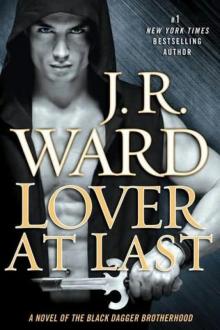 Lover At Last tbdb-11
Lover At Last tbdb-11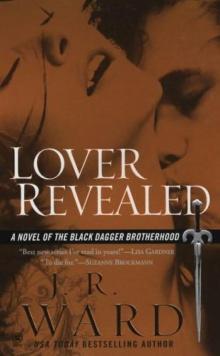 Lover Revealed tbdb-4
Lover Revealed tbdb-4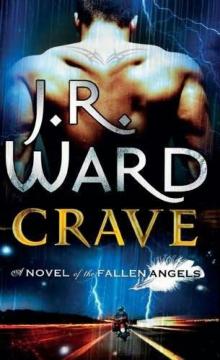 Crave fa-2
Crave fa-2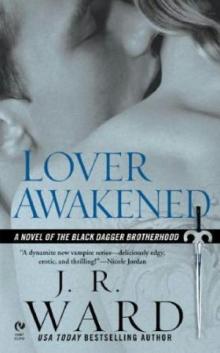 Lover Awakened tbdb-3
Lover Awakened tbdb-3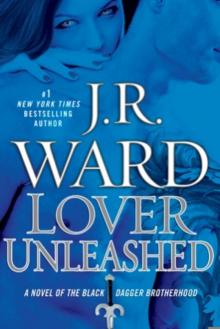 Lover Unleashed bdb-9
Lover Unleashed bdb-9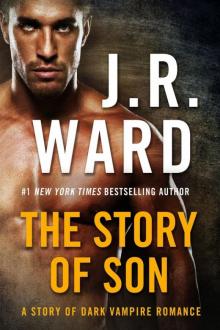 The Story of Son
The Story of Son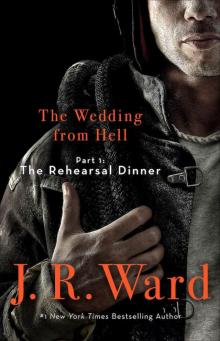 The Wedding from Hell_Part 1_The Rehearsal Dinner
The Wedding from Hell_Part 1_The Rehearsal Dinner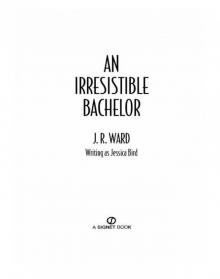 An Irresistible Bachelor
An Irresistible Bachelor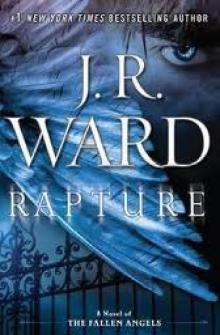 Rapture fa-4
Rapture fa-4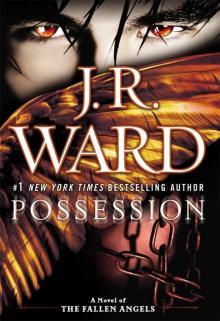 Possession fa-5
Possession fa-5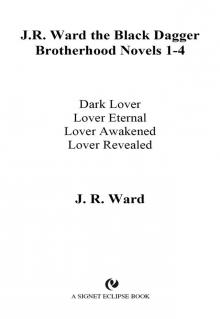 The Black Dagger Brotherhood Novels 1-4
The Black Dagger Brotherhood Novels 1-4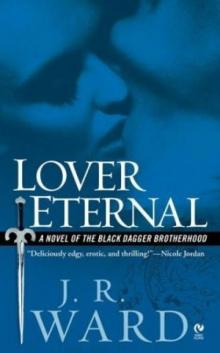 Lover Eternal tbdb-2
Lover Eternal tbdb-2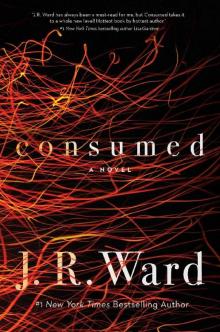 Consumed (Firefighters #1)
Consumed (Firefighters #1)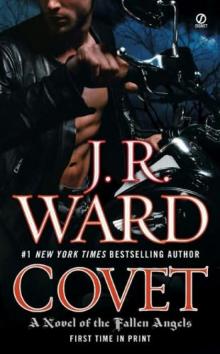 Covet fa-1
Covet fa-1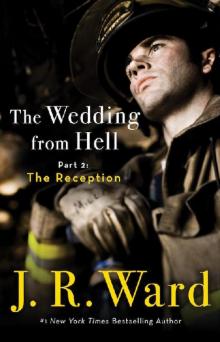 The Wedding From Hell: Part 2: The Reception
The Wedding From Hell: Part 2: The Reception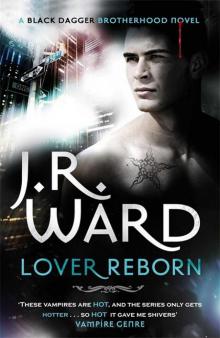 Lover Reborn: A Novel of the Black Dagger Brotherhood
Lover Reborn: A Novel of the Black Dagger Brotherhood